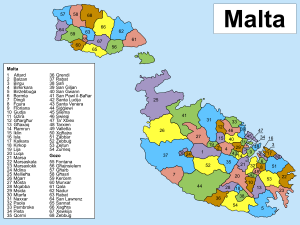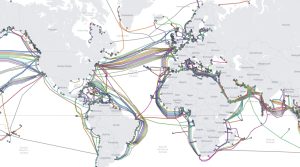In the 8000 years of human presence in Malta we have been invaded militarily at least 22 times. The first military invasion seems to have happened around 2350 BC when people from the Bronze Age brought the first weapons to our islands
Six of our invasions came from North Africa and the Eastern Mediterranean: the Carthaginians (480 BC), the Aghlabides (835 and 870 AD), the Berbers and Hafsids (1429 and 1551 AD) and the Ottomans (1565).
Sixteen invasions, two of them by invitation which turned into occupation, came from Europe. After the arrival of the Bronze Age people from Sicily we had the Roman invasion (257 BC and 218 BC), the Vandals (455 AD), the Ostrogoths (475 AD), the Byzantines (533 and 1053 AD.) In 1091 Count Roger’s soldiers pillaged Gozo after capturing Malta.
Other invasions followed: in 1127 by King Roger of Sicily and in 1224 by King Roger II. In 1272 Gozo was depopulated after the islands fell under the control of Frederick II’s Swabians. In 1274 the Genoese raided Gozo and depopulated it, in retribution for the sinking of two of their ships by the Angevines outside the Grand Harbour. In 1283 the Aragonese admiral Lauria conquered the Citadel of Gozo and left a garrison of 100 soldiers in control of the island. Around 1301 James II of Sicily attacked Gozo. Many Gozitans were carried away into slavery.
In 1530, without consulting the Maltese as obliged, Emperor Charles V, gave our islands to the Order of the Knights of Malta. In 1798 Napoleon invaded and captured Malta. Two years later the British came to oust the French and then occupied Malta up until 60 years ago.
All these invasions and occupations of Malta formed part of the wars for the strategic control of the Mediterranean. We have woven a historical narrative for the last 459 years as a nation caught in the crossfire between the warring defenders of Christianity and Islam, culminating in the siege of 1565. We have blanked out from our historical memory the unholy wars fought over us between Christian powers competing for power and trade advantages in the Mediterranean.
In our historical narrative we are the protagonists in the Holy War between the Cross and the Crescent where we are the victims of attacks and raids by Arab and Ottoman Muslims who come to enslave us while European Christians come to liberate us, also with the intercession of saints.
Manichean mindset
Our invaders and occupiers, irrespective of where they came from and in how they tried to justify their domination over us, were here to use us primarily for their miltary strategic ends. Any collateral benefits were secondary.
When any of the major powers in the Mediterranean conquered our islands, its rivals would try to snatch us from them. The Maltese and Gozitans were caught in these wars that they never caused. The Gozitans used to suffer more than the Maltese as those who controlled Malta gave little attention to Gozo and left the Gozitans without adequate means to defend themselves.
In ‘The Maltese Festa – A Historical and Cultural Perspective’ (2005) Professor Carmel Cassar explains that: “… political propaganda by the state glorified the exploits of the Knights, and particularly Grand Master La Valette, as the protagonists of the Ottoman Siege of Malta 1565. The aim clearly was to justify and strengthen the Order’s strategic position on the island and to ensure that the loss of their own fellow country people was interpreted as a sacrifice to a higher cause. Patriotic resistance became identified with the religious motive and the struggle against the Muslim inevitably assumed the nature of a Holy War. This ‘ideal’ motive was still strong in the eighteenth century, when a protracted crusade against the Moslem ‘infidel,’ enemy of both the Maltese and the Order, could unite the people and the Order in a common aim.”
In the ‘Political uses of the past: the recent Mediterranean experience’ (2002) Jacques Revel and Giovanni Levi write: “ …almost every nation in southeastern Europe is represented in its self-perception and national myth as the bulwark of a particular universal system of values (Christianity. Islam. and so on).”
Around 500 years ago the ‘Antemurale Christianitatis’ ran from one side of the Mediterranean to the other. It was a Papal label given to those countries as frontiers of Catholic Europe defending it mostly from the Ottoman Empire and Eastern Christian Orthodoxy. The idea of defending the West against the South and East has proven to be of crucial importance for the construction of the Maltese self-identity.
This Antemurale myth insists on the countries’ inclusion into some larger cultural entity which is allegedly superior to other groups which do not belong to it. This mindset facilitates the propensity of the people of these countries to join entities like the European Union and the North Atlantic Treaty Organization (NATO) as a continuation of their mission of belonging to the West against the East.
In her article ‘Needing an Enemy: On the Manichean Mindset of the North Atlantic’s Foreign Policy Establishment’ (9 September 2020), Dr. Arta Moeini, Research Director of American Institute for Peace & Diplomacy writes how: “The dualistic paradigm of the international system during the U.S.-Soviet rivalry bred an entire generation to see the world through a black-and-white binary.”
She writes that “the North Atlantic elites continue to seek adversaries to demonize and “monsters to destroy” not only in order to justify their moral universalism and presumed ideological superiority” but also because of the “endless stream of funding from the defense industry, neoliberal and neoconservative foundations, as well as the … bipartisanship” of the Democrats and the Republicans “around preserving the status quo”.
She says that the West has replaced the Soviet Union with Russia and China as the enemy in today’s holy war between good and evil … suggesting that the North Atlantic bloc holds a certain monopoly on all that is good and true.”
Times of Malta 6 September




